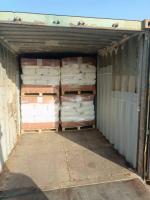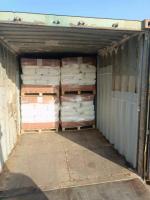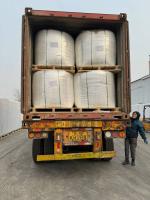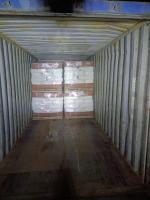Our Products
Polyacrylamide / Nalco 71302 cationic polyacrylamide can be replaced by Chinafloc EM series

The Application of Cationic Polyacrylamide Emulsion (Nalco 71302)
Cationic polyacrylamide emulsions are high-performance polymers widely used in wastewater and sludge treatment applications. Among these, Nalco 71302 is a proprietary formulation offered by Nalco Water (an Ecolab company) under its advanced CORE SHELL™ polymer platform. This product has been engineered to provide exceptional performance in sludge dewatering and solid-liquid separation processes. As a cationic polyacrylamide emulsion, Nalco 71302 exhibits strong positive charge density and high molecular weight, making it highly effective in binding with negatively charged particles in water systems. The following sections provide a comprehensive 998-word explanation of the applications and advantages of Nalco 71302 in a variety of treatment environments.
1. Municipal Sludge Dewatering
The most significant application of Nalco 71302 is in municipal sludge dewatering. Wastewater treatment plants generate large quantities of biological sludge as a byproduct of secondary (biological) treatment processes. This sludge contains more than 95% water and requires conditioning to reduce volume before disposal. Nalco 71302 is added before mechanical dewatering operations—such as belt filter presses, screw presses, or centrifuges—to facilitate water removal and increase sludge dryness.
Nalco 71302 works by binding to the negatively charged components of sludge, such as microbial cells and extracellular polymeric substances (EPS). It neutralizes these charges and promotes floc formation. These flocs are large, dense, and easier to dewater mechanically, resulting in a drier sludge cake. A drier cake reduces the volume of material sent to landfill or incineration, leading to substantial cost savings in sludge transportation and disposal.
2. Industrial Wastewater Treatment
In industrial settings, Nalco 71302 is used to treat effluents containing organic and inorganic suspended solids. Industries such as pulp and paper, textiles, petrochemicals, meat and poultry processing, dairy, breweries, and food production generate complex wastewater streams with high biochemical oxygen demand (BOD), chemical oxygen demand (COD), fats, oils, and greases (FOG), and emulsified solids. These suspended materials are often anionic in nature and resist settling.
When Nalco 71302 is dosed into these effluents, it flocculates the negatively charged particles, allowing them to form large, settleable flocs that can be separated by sedimentation or flotation. This enhances the clarity of the treated water, reduces the pollutant load, and ensures compliance with environmental discharge standards. It is often used in conjunction with inorganic coagulants such as alum, ferric chloride, or polyaluminum chloride (PAC) to improve treatment efficiency.
3. Dissolved Air Flotation (DAF) Systems
Dissolved air flotation (DAF) systems are widely used in both municipal and industrial wastewater treatment for removing suspended solids, oils, and greases. Nalco 71302 enhances the performance of DAF units by promoting the aggregation of fine particles and emulsions into larger flocs that can more readily attach to air bubbles and rise to the surface for removal.
In food and beverage processing plants, for example, DAF systems handle high-strength wastewater streams with heavy organic loads. Nalco 71302 helps to stabilize flocs, prevent deflocculation under shear, and improve sludge capture. This results in cleaner effluent and reduced chemical consumption, improving the overall sustainability of the process.
4. Sludge Thickening
In wastewater treatment, particularly in large-scale operations, sludge thickening is a critical step preceding digestion or dewatering. Nalco 71302 is used to improve the performance of gravity thickeners, dissolved air flotation thickeners, and drum thickeners. It promotes rapid settling or flotation of sludge solids, resulting in a thickened sludge that is more concentrated and easier to handle in downstream processes.
Thicker sludge reduces the hydraulic load on digesters or dewatering equipment and minimizes the use of auxiliary chemicals. Nalco 71302 ensures consistent thickening performance across a range of sludge types, including waste activated sludge (WAS), primary sludge, and mixed sludges.
5. Primary and Secondary Clarification
Nalco 71302 can also be applied in clarification processes, particularly in facilities that suffer from poor settling characteristics or filamentous sludge. In primary clarification, it accelerates the settling of organic matter, sand, and grit. In secondary clarification, Nalco 71302 improves the compaction and settling rate of activated sludge, enhancing the clarity of clarified effluent and reducing carryover of suspended solids.
Its high charge density makes it especially useful in systems where sludge bulking, poor settleability, or dispersed growth are problematic. It improves sludge volume index (SVI) and contributes to more stable plant operations, especially in nutrient removal facilities where solids separation is critical for performance.
6. Mining and Mineral Processing
Although Nalco 71302 is primarily used in wastewater and sludge treatment, it may also find application in mining and mineral processing, where it functions as a high-performance flocculant. In this sector, it can be used to treat tailings, clarify process water, and recover valuable minerals through solid-liquid separation.
Its strong cationic nature is beneficial in binding with clays, silts, and mineral fines that are difficult to settle. It can be used in thickener circuits and tailings ponds to improve dewatering rates and recover process water for reuse.
7. Environmental and Operational Benefits
Nalco 71302 not only delivers excellent flocculation and dewatering performance, but it also contributes to operational efficiency, environmental compliance, and cost reduction. Key benefits include:
-
Reduced chemical dosage: Due to its optimized molecular architecture, lower doses of Nalco 71302 can achieve superior results compared to conventional polymers.
-
Improved dewatered cake solids: Leading to lower transport and disposal costs.
-
Faster dewatering cycles: Enhancing throughput in treatment systems.
-
Improved effluent quality: Helping facilities meet stringent discharge limits.
-
Lower energy consumption: Through more efficient separation processes and reduced sludge volumes.
Moreover, Nalco 71302 is formulated to be environmentally responsible, with low volatile organic compound (VOC) emissions and compatibility with most wastewater treatment environments.
8. Compatibility and Usage Considerations
Nalco 71302 is typically supplied as an oil-in-water emulsion, which must be properly diluted before use. It requires controlled mixing and aging to achieve full activation of the polymer. Automated polymer make-down systems are often used to ensure consistent and efficient application.
It is compatible with a wide range of coagulants and can be fine-tuned for use with specific sludge or wastewater types by adjusting the dose and dilution ratio. Operators must ensure that storage conditions and shelf life are monitored, as emulsions are sensitive to temperature extremes and prolonged storage.
Conclusion
Nalco 71302, a high-performance cationic polyacrylamide emulsion, is a vital tool in the management of wastewater and sludge across various industries. Its primary function is to facilitate efficient flocculation, enabling improved dewatering, clarification, thickening, and flotation processes. By optimizing the aggregation and removal of solids, Nalco 71302 enhances treatment system performance, reduces operational costs, and supports environmental compliance. Its versatility and effectiveness make it an essential component of modern water treatment strategies, particularly in demanding applications where efficiency, reliability, and sustainability are critical.





